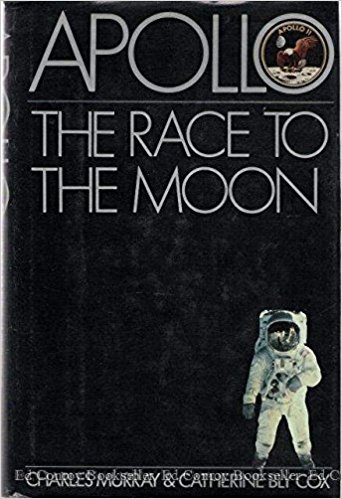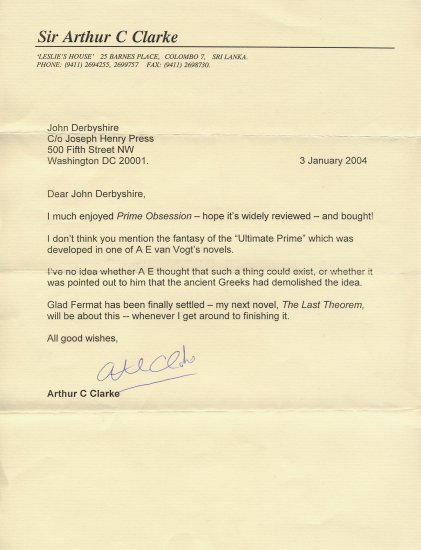
Derb’s April Diary: Amren Report, Charles Murray’s Space Program Book, Foreign Meddling, Etc. (13 Items!)
05/01/2018
From showery to flowery. As a child I learnt the old rhyme characterizing the months:
Snowy, Flowy, Blowy,
Showery, Flowery, Bowery,
Hoppy, Croppy, Droppy,
Breezy, Sneezy, Freezy.

So there went Showery, and now we're into Flowery. The back yard is a riot of daffodils (or a host, if you want to be punctilious about it).
Then comes Bowery; which, taking the word to mean "leafy" means up to the treehouse for some spring cleaning and repairs. Fourteen years old now, the structure’s bearing up remarkably well; but that tree’s still growing, and as it grows it tries to pull my treehouse apart. Mother Nature will win at last, I guess, but I'll fight her to the end.
Tennessee does what Virginia didn’t. April was actually Speak-Truth-To-Powery, or it would have been if anyone in power listened to the proceedings of American Renaissance conferences.
They really should. There is more good sense and realistic prognostication about our country spoken at an AmRen conference than you'll hear in an entire twelve-month congressional session.
I live-tweeted from this year’s conference and don’t have much more to add. Video of the proceedings will go up at the AmRen website, and some other attendees have tweeted or blogged about it — the indefatigable Z-man, for example, here, here, and here.

As Z says, the Antifa protest of this year’s conference was a floperoo, mainly due to a huge security operation by Tennessee state law enforcement.
Put it another way, the authorities of Tennessee did, very professionally and courteously, what the state authorities of Virginia and the city authorities of Charlottesville so disgracefully failed to do last summer: They protected the right of citizens peacably to assemble, and they nipped mob violence and rampaging anarchy in the bud. Thanks, Tennessee!
As with the April 21st demonstration in Georgia, law enforcement at the AmRen conference even pushed back against the anarchists' going masked.
When one young protester briefly wore a bandana around the lower half of his face, police charged at him, grabbed him by the arms and walked him out of the protest pen.
Yee-hah! However:
In an act of solidarity, a group of his fellow protesters then donned masks of their own and stared down police for an hour. This time the police did nothing.
I'd have preferred it if they'd waded in to the anarchists with billy clubs and cattle prods at that point … but no doubt the cops know best how to do their job.
It was a great conference: civilized, instructive, and high-spirited. Thanks to all who helped make it possible; and of course, most of all to the great, the indispensable Jared Taylor. Excelsior!
 Book of the month. Did you know that Charles Murray and his wife Catherine co-wrote a book about the Apollo Program? It was published in 1989, between Losing Ground and The Bell Curve.
Book of the month. Did you know that Charles Murray and his wife Catherine co-wrote a book about the Apollo Program? It was published in 1989, between Losing Ground and The Bell Curve.
I did not know this until a few weeks ago. Intrigued, I bought a copy of the book and read it.
It’s very good, a first-class piece of book-length journalism. You get as much technical stuff as you could possibly want, interleaved with personality profiles of all the people who made the moon landings possible — engineers, administrators, and astronauts — along with blow-by-blow accounts of their disagreements and conflicts.
Believing as I do in the broad general principle that men are more interested in things, women in people, I found myself quietly wondering whether the technical stuff was mostly done by Charles, the personalities by Catherine. I actually met Charles at a function this month, shortly after finishing the book; I should have asked him, but it slipped my mind.
Co-written as it was by a hatefully hate-filled hater like Charles, and furthermore published back in the Dark Ages of thirty years ago when it was legal — in fact compulsory — for white people to shove black people off the sidewalk and women were chained to their kitchen sinks, I had better warn sensitive souls that Apollo: The Race to the Moon is really not suitable for placing on the bookshelves in your Safe Space.
There is no mention at all of the black women who did all the heavy-duty math that made the space program possible; and the authors give Werner von Braun a good press. Eeeek!
As a hateful hater myself, I didn’t mind any of that. As a Long Islander, though, I did wish the Murrays had given us more about the design and building of the Lunar Excursion Module, much of which was done by Grumman Corp. here on the Island. The oldest generation of locals still speak of the LEM with pride.
To be perfectly fair, the authors do have references in their endnotes to Pellegrino and Stoff’s book Chariots for Apollo: The Making of the Lunar Module, now on my reading list.
Most stunning picture in this book is one showing the crawler, the tracked vehicle that transported a Saturn V rocket from the Vehicle Assembly Building to the launch pad. If you look carefully at the picture, down at bottom left you can just make out an accompanying vehicle — actually a large fire truck, but almost lost against the vast size of the crawler.
What colossal engineering achievements went into Apollo! Who believes we could do such things today?
But hey: We have Facebook and Twitter!
Open the pod bay doors, Hal. On the same general theme: April 3rd marked the fiftieth anniversary of the nationwide release of Stanley Kubrick’s movie 2001: A Space Odyssey.
Did I like 2001? Yes, I liked it a lot. Do I have anything to say about it that hasn’t already been said? No, I don’t
So why have I mentioned it? Because the plot of 2001 was inspired by one of Arthur C. Clarke’s short stories and I want to show off my favorite fan letter once again.

My Uncle Fred, a sci-fi buff from way back, had a copy of Clarke’s book The Exploration of Space. I read it in his house circa 1956.
Now Clarke has a mountain range named after him. It’s three and a half billion miles away, but he wouldn’t have minded that.
It’s OK to be John! Steve Sailer had some fun with a New York Times story about guys named John.
The number of chief executives named John — a group that is overwhelmingly white — is very similar to the number of female executives. There are even more Jameses. [The Top Jobs Where Women Are Outnumbered by Men Named John by Claire Cain Miller, Kevin Quealy and Margot Sanger-Katz NY Times, April 24, 2018.]
I’m heartened to see this evidence of John supremacy. It’s OK to be John! ("It’s OK to be a John!" doesn’t quite work …)
George Orwell said it took him thirty years to recover from having been named Eric (his real forename). The name had been popularized for late-Victorian and Edwardian parents by a sternly moralistic book of the 1850s, just the kind of book Orwell hated.
I can’t say I've ever minded having the name John. Cumbered as I am with a ten-letter surname, I appreciate the brevity.

I know how I came by the name. My father was John Robert; my mother’s father was John Henry; she had a brother also named John Henry.
When I was born my mother wanted me named Peter, I don’t know why. My father overruled her thus: "Your father’s John, your brother’s John, and you married John. It’s a good serviceable name." Toxic masculinity won the day. I've been John ever since.
The paradox is that no-one ever called my father John. He was known to everyone as Bob. Similarly, my Grandad John and my Uncle John were hardly ever anything but Jack. The only exception was when Grandma was annoyed with Grandad: then he got the full "John Henry!"
To my forebears, proles from the gritty industrial West Midlands of England, "John" had a whiff of the Squirearchy about it, something hifalutin. It looked as though it needed a "Sir" in front of it. "Jack" was more down home.
(And yes, I know the old quip about the importance of capital letters in writing, as illustrated by the sentence: "I helped my Uncle Jack off a horse.")
Institutional memory. My stock answer when asked whether I consider myself Alt Right is: "No, I’m too old."
All right, it’s flippant. I do, though, feel at a distance from the younger, wilder spirits fighting back against the creeping totalitarianism of the modern West. All strength to them! but … I’m old. With age comes reflection and caution. Did any 72-year-old ever run whooping and hollering towards an enemy machine-gun nest? I doubt it.
I heard another side of this when speaking with two young Dissident Right friends — one still a college student — shortly before the AmRen conference. No, I said when asked, I didn’t have a full speaking slot at the conference, and I was fine with just being an attendee. There comes a point (I added) when we graybeards need to step back and let Youth take its turn.
They chided me for that. It’s my generation (they said) that stands witness to what society was like before diversity, multiculturalism, and collective guilt came up. We are the institutional memory, the ballast of the Dissident Right — a precious resource.
I don’t think this was meant as idle flattery. I took it to heart in any case, and am now ashamed of my former negativity.
Foreign meddling. Say what you like about our meddling in other nations' internal conflicts, our government is at least up front about it.

A friend passed on some military pamphlets he picket up at a recruiting booth. Here’s one for the Special Forces:
The U.S. Army Special Forces, also known as Green Berets, is a strategic multipurpose force that is trained and equipped to respond to various contingencies around the world. These missions include direct action, special reconnaissance and unconventional warfare where you conduct activities to enable a resistance movement or insurgency to coerce, disrupt or overthrow a government or occupying power by operating through or with an underground, auxiliary and guerilla force in a denied area.
For a 20-year-old guy full of pee-pee and vinegar, it sounds like terrific fun, and certainly there are bad people in remote places who need killing by us.
Still, "to coerce, disrupt or overthrow a government …" How often is that any proper business of ours? Who gets to decide?
I’m of the Steve Sailer school. If we didn’t invite so much of the world, we wouldn’t need to invade so much, or waste our substance in godforsaken sinkholes like Niger.
And if disrupting and overthrowing unfriendly governments is truly a thing we ought to be doing, why not start with Mexico?
Skipping the begats. The puzzle? Finished. And yes, the sacred ceremony of Placing the Last Piece has been carried out with appropriate reverence.

Discussing the Tower of Babel story with a friend, he mentioned that he had embarked on a project to read the entire Bible, King James version, supplemented by listening to Alexander Scourby’s readings at SoundCloud. Scourby, who has a fine resonant voice, has recorded the entire KJV Bible twice.
That — reading the whole book — is something I'd like to attempt, if I could summon the resolution. I actually did attempt it many years ago, before I got married, but lost my attention in one of those endless chains of begats in the Pentateuch and bailed out.
Were I to essay another attempt now, older and more patient, I'd take the OT out of sequence.
- First, the history books. They have good narratives, memorable personalities, and not too many begats. Plus, I like history.
- Then, the prophets, who key handily to some of that history.
- Then the wisdom books, which I've always had a liking for and find I know quite well.
- Only then, finally, would I make another assault on the Pentateuch, perhaps just skipping the begats.
The odd thing here is that I am irreligious, and so is my friend. Not anti-religious in the style of Hitchens or Dawkins, only non-observant.
The Bible is one of Western Civ’s foundation stones, though, as my jigsaw puzzle (and last year’s, too) illustrates. Besides, there is a quiet pleasure in filling out the stories you half-remember from your childhood.
Read the whole thing? I bet I could. I shall, but … not just yet.
Rhetorical question. Until this month the only book I possessed whose subject matter is rhetoric was Figures of Speech, Arthur Quinn’s nifty little handbook, very useful when you've forgotten the difference between an ellipsis and an aposiopesis.

I now have another one. Early in April, in fact, I met an actual Professor of Rhetoric. I didn’t know such positions existed, but they do.
This was Philippe-Joseph Salazar, Distinguished Professor of Rhetoric in the Faculty of Law at the University of Cape Town, South Africa. Prof. Salazar was kind enough to give me a copy of his book Words Are Weapons: Inside ISIS’s Rhetoric of Terror.
Not much on ellipsis and aposiopesis here, but some fine gloomy passages about the Fate of the West.
It is possible too, we hope, that the lesson of November 13 might have been to make us, at last, realize that nothing can replace the culture of letters, the civilization of elevated writing and oratory that is specific to Western civilization. The power of the caliphal library is that it is gradually gaining a foothold, book after book, battle after battle, and that it is settling in our territories devastated by the decline in intelligence, in populations that were once cultured, which sink a little further into comfortable and insolent ignorance every day, only to emerge after a carnage to express their rage and tears, bearing lighted candles. Pathos can never take the place of culture. Cemeteries are mute.
Prof. Salazar lives up to his own high standards of cultural literacy: That last sentence was, he tells me, inspired by Rodrigo in Verdi’s Don Carlo. All right; but does it rise to the level of being a catachresis?
Heard around the house. Writing about my forebears back there brought to mind a conversation with Sam Dickson at the AmRen conference. Sam’s of my generation, more or less, and we traded some of the folk sayings and axioms we heard around the house as kids.
Ever since I've been wistfully recalling more of those things, common usages by my elders in the middle 20th century, rarely heard since.
- Someone walked over my grave. [Said when the speaker had experienced a shudder of foreboding about something.]
- Well, this won’t buy the baby a bonnet. [The speaker should be busy at some task, not necessarily remunerated, but has been idling for a while.]
- You have to hold a candle to the Devil. [I.e. go along with something you don’t think altogether right, for the sake of some greater good, or just of a quiet life.]
- Where there’s muck there’s brass. [Muck = dirt; brass = money.]
- That’s what the cobbler threw at his wife. [I.e. the last, said on finishing up some task.]
- Don’t teach your Granny how to suck eggs. [Don’t think you know more than someone older. Did people really suck eggs? And is it really something you need to study to get right? No idea.]
There must be a hundred others down there in the silt at the bottom of my memory.
Math Corner. There is a worked solution to last month’s brainteaser here.
This month I just want to pay tribute to Mathematical Intelligencer, whose current issue (Spring 2018) celebrates the quarterly magazine’s fortieth birthday.
The Intelligencer carries plenty of good meaty articles about, of course, mathematics; but it has the great virtue of not taking itself, or its subject matter, too seriously.

In this issue, for example, in among articles titled "On Models and Visualizations of Some Special Quartic Surfaces" (art meets differential geometry) and "Using Kempe Exchanges to Disentangle Kempe Chains" (graph theory), there is one on "The Mathematics of Taffy Pullers" (quite challenging, with nods to matrix algebra and Information Theory).
Mary Leng gets 2700 words out of "Does 2 + 3 = 5? In Defence of a Near Absurdity," which, speaking just a a writer, I find pretty darn impressive.
There is mathematical verse, a genre I have ventured into myself from time to time. This one is a parody on Robert Frost:
Whose proofs these are, I think I know —
He assigned the work a week ago …
Least serious of all is a spoof letter by Colin Adams "To the Fields Medal Committee," recommending himself for that award, the math equivalent of a Nobel Prize, notwithstanding that:
I am fully aware that I am an unusual choice for the medal, given my extremely limited research credentials.
He makes the best case he can, though:
Another advantage to choosing me is that I am not a candidate who is likely to turn the medal down, once offered. That can be quite embarrassing, as you know all too well …
(That’s a reference to Grigory Perelman’s turning down of the Fields Medal in 2006.)
Colin Adams is about as qualified for a Fields as I am. Like me, in fact, he’s too old for the award: It is limited to mathematicians under forty, and he’s forty-five. That just gives him the opportunity to make a veiled threat of legal action, though:
What better way to say, "We are sorry for our blatant discrimination on the basis of age. Our shameful behavior deserves contempt …"
Altogether a fun commemorative issue, marred only by a twelve-page article on "Women’s Representation in Mathematics Subfields." There is no escaping this Grievance Studies flapdoodle nowadays, though, and twelve pages out of ninety-six is tolerably restrained as things currently go in STEM journals.
So congratulations to the Intelligencer on forty years of instruction and amusement, and best wishes for forty more!
John Derbyshire writes an incredible amount on all sorts of subjects for all kinds of outlets. (This no longer includes National Review, whose editors had some kind of tantrum and fired him. ) He is the author of We Are Doomed: Reclaiming Conservative Pessimism and several other books. He has had two books published by VDARE.com com:FROM THE DISSIDENT RIGHT (also available in Kindle) and FROM THE DISSIDENT RIGHT II: ESSAYS 2013.
For years he’s been podcasting at Radio Derb, now available at VDARE.com for no charge.His writings are archived at JohnDerbyshire.com.
Readers who wish to donate (tax deductible) funds specifically earmarked for John Derbyshire’s writings at VDARE.com can do so here.

![2010-12-24dl[1]](/assets/img/2015/04/2010-12-24dl1-150x112.jpg)